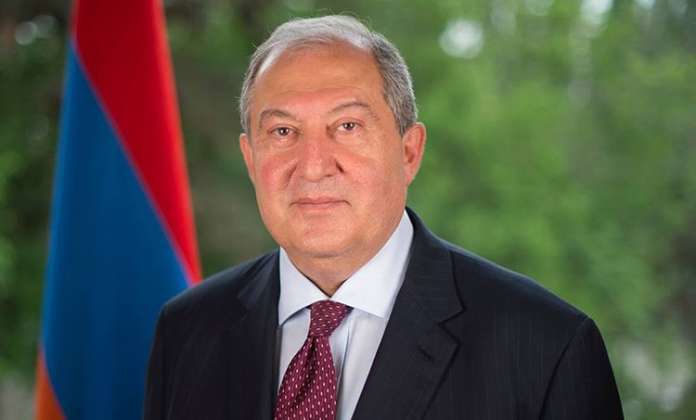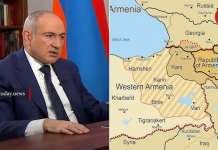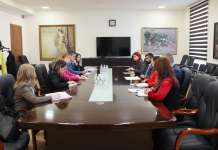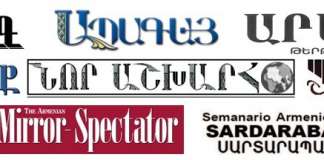Touching upon the situation in regard to the Constitutional Court of Armenia and answering the question whether he is going to sign the decision of the National Assembly on holding a pan-national referendum, President of Armenia Armen Sarkissian particularly said the following in an interview with Shant TV, Aravot Daily and Mediamax news agency:
“The President of Armenia shouldn’t get entangled in the affairs of neither the government nor parliament. The President can collaborate and give advice, but not get entangled, especially express opinions on this or that issue. The Constitution doesn’t imply the President’s interpretation either.
The President doesn’t interpret the Constitution and laws.
This is a rather important issue. Let’s assume the President is given a law that, according to specialists, doesn’t contradict the Constitution. At the given moment, the President can either sign or not sign the law, and after a while, the National Assembly can enforce it. The law isn’t forwarded to the Constitutional Court since it doesn’t contradict the Constitution. However, the President himself is well aware that even though the given law might not contradict the Constitution, it may play a harmful role in the solution to a particular issue. The President has to make a decision. In some countries, a solution may be the right to veto, but this has to be reasoned. In other countries, the President is entitled to return the law to the National Assembly and say that even though it doesn’t contradict the Constitution, there are formulations that will cause harm.
Life is more complicated than laws. The most important law is the Constitution. I have been closely following the recent events. The Staff of the President hasn’t received the relevant documents yet. When it does, I will express my attitude, but the issue won’t concern my signature.”
Stating the fact that he has been following the processes unfolding in the National Assembly, President Sarkissian said the following: “I’m in favor of reinforcement of the process of addressing the people in our culture. There are a couple of ways of addressing the people. One of them is a referendum, and the other — plebiscite, or expression of will. I believe this is highly valuable in the 21st century. We all live virtual and real lives. I believe that, for any government, especially now when people are living two lives, it is very important for the government to talk to the people and express opinions. The expression of will of the people isn’t linked to a particular law, but the attitude of the people. There are countries where this is applied successfully. In a country like Switzerland, the government addresses the people with even simple issues.
There is no need to be afraid of a referendum. In the conditions of “two lives” in the 21st century, it even becomes necessary to step down and ask for the people’s opinions from time to time.”
















